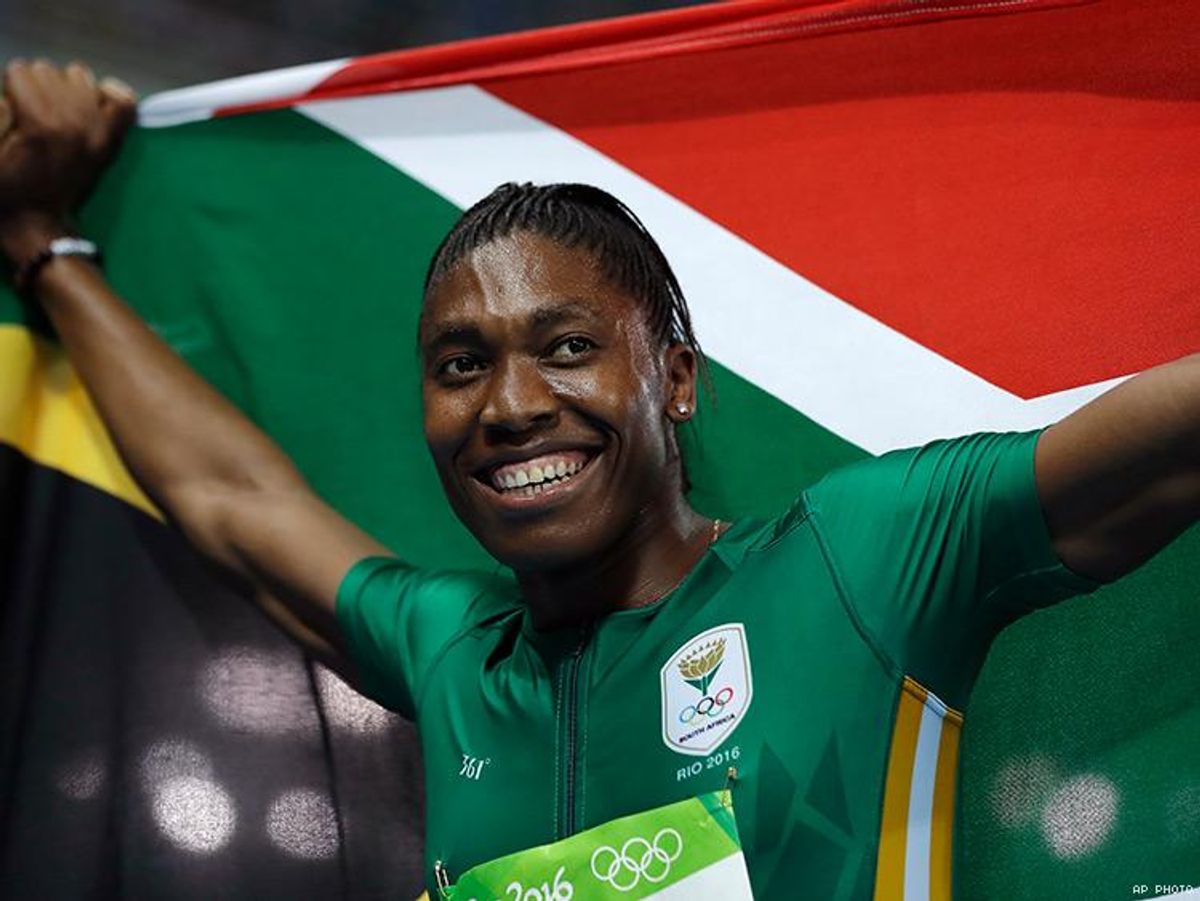South African gold medalist Caster Semenya continues to be the epitome of athleticism and class. During a Saturday press conference with the other 800-meter medalists, the out athlete deflected invasive questions about both her and her fellow medalists' genders.
A reporter at the press conference asked all three women if they had been encouraged by the International Association of Athletics Federation, track and field's governing body, to take medications that would reduce their testosterone levels. All three 800-meter medalists have been the object of much speculation about the possibility that they have a medical condition called hyperandrogenism, which means a higher-than-average level of testosterone.
After silver medalist Margaret Wambui responded to the question with an attempt to recenter the conversation on the race, Semenya spoke up and pushed back on the invasive inquiry, saying, "Excuse me, my friend. Tonight is all about performance. We are not here to talk about IAAF and speculations. Tonight is all about performance. This press conference is all about the 800-meter we ran today. So, thank you."
Semenya came under intense scrutiny in 2009 after a number of stunning wins at the World Championships, and was subjected to "gender tests" by the IAAF. She was ultimately cleared to complete and won silver at the London Olympics in 2012.
After Semenya's gold medal finish in Rio, British runner Lynsey Sharp complained that the IAAF's new rules that no longer require hyperandrogenic women to take drugs to suppress their testosterone levels below certain levels gave Semenya an unfair advantage. Sharp finished sixth in the 800-meter race. There is currently no clear medical evidence that hyperandrogenic women have an athletic advantage.
During the press conference, Semenya also discussed the ways in which sport can unite people, saying:
"It is not about discriminating people and looking at people in terms of how they look, how they speak, and how they have run. It's not about being masculine. It's about sports. When you leave your apartment you don't want to look at what you look like. You just want to do better. The message to people out there is to have fun and see what you can achieve. That's what I want to say."












































































